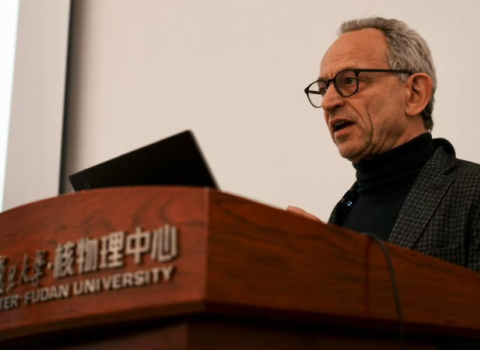The five want more investment in R&D and a new technology strategy. But with political stalemate in Spain following the election on Sunday, a push by the Spanish presidency of the EU Council to make progress on strategic autonomy could stall

The EU needs a new technology strategy backed by R&D investments of at least 3% of GDP in all member states and a new governance structure to implement its open strategic autonomy plans, according to a new ‘non-paper’ by five member states.
Belgium, Finland, the Netherlands, Portugal and Slovakia published the joint paper on open strategic autonomy, which calls on the EU to come up with a coordinated approach to becoming a frontrunner in critical technologies.
The paper comes less than a month into the Spanish presidency of the EU Council, whose six-month programme features a significant focus on preserving EU’s strategic autonomy while remaining open to global research and innovation cooperation.
In advance of taking up the presidency, the then Spanish government took a moderate stance on the EU’s quest for technological independence, warning against overreacting to the growing political and technological rivalry between the US and China. Instead, the government, then led by Pedro Sánchez, wanted to champion rebuilding trust with EU’s allies.
However, snap elections held on Sunday in Spain resulted in a stalemate and political parties are expected to go through some painful negotiations in the coming weeks, with both right and left seeking to form the next government.
This is casting a shadow of doubt over what Spain can achieve during its time at the helm of the EU Council. While political meetings, diplomatic working parties and sector conferences will go ahead as planned, the presidency risks losing some political weight on important files, including open strategic autonomy, as a result of ongoing turmoil in Madrid.
The paper published by the five countries calls for the EU to become stronger and more resilient, in order to safeguard and promote its core interests globally. The group of five says the upcoming high level discussions during the Spanish presidency should focus on providing a clear and comprehensive framework for open strategic autonomy, identify policy areas that require increased attention and propose a governance structure that allows the EU to increase its capacity for action.
Technological leadership
The paper says the EU needs a comprehensive technology strategy, to advance excellence in research and innovation and to speed up the transfer of technologies from lab to scalable companies.
The strategy should contribute to a more systematic and strategic approach to industrial policy and focus on technologies that are vital for EU’s economic security and which could strengthen its position in the global economy. Academia, civil society and industry should be involved in setting out the strategy.
The five countries say the EU is not investing nearly enough in research and innovation. Pledges to reach an average R&D investment of 3% of GDP have not been fulfilled in the large majority of EU member states.
“Considering that knowledge is crucial for working on a future-proof economy and society, we should strive to meet the public and private expenditure goal of spending 3% of the GDP on research and development,” the paper says.
In addition, the EU should enhance cross-border cooperation and lower barriers to start-ups and scale-ups.





 A unique international forum for public research organisations and companies to connect their external engagement with strategic interests around their R&D system.
A unique international forum for public research organisations and companies to connect their external engagement with strategic interests around their R&D system.